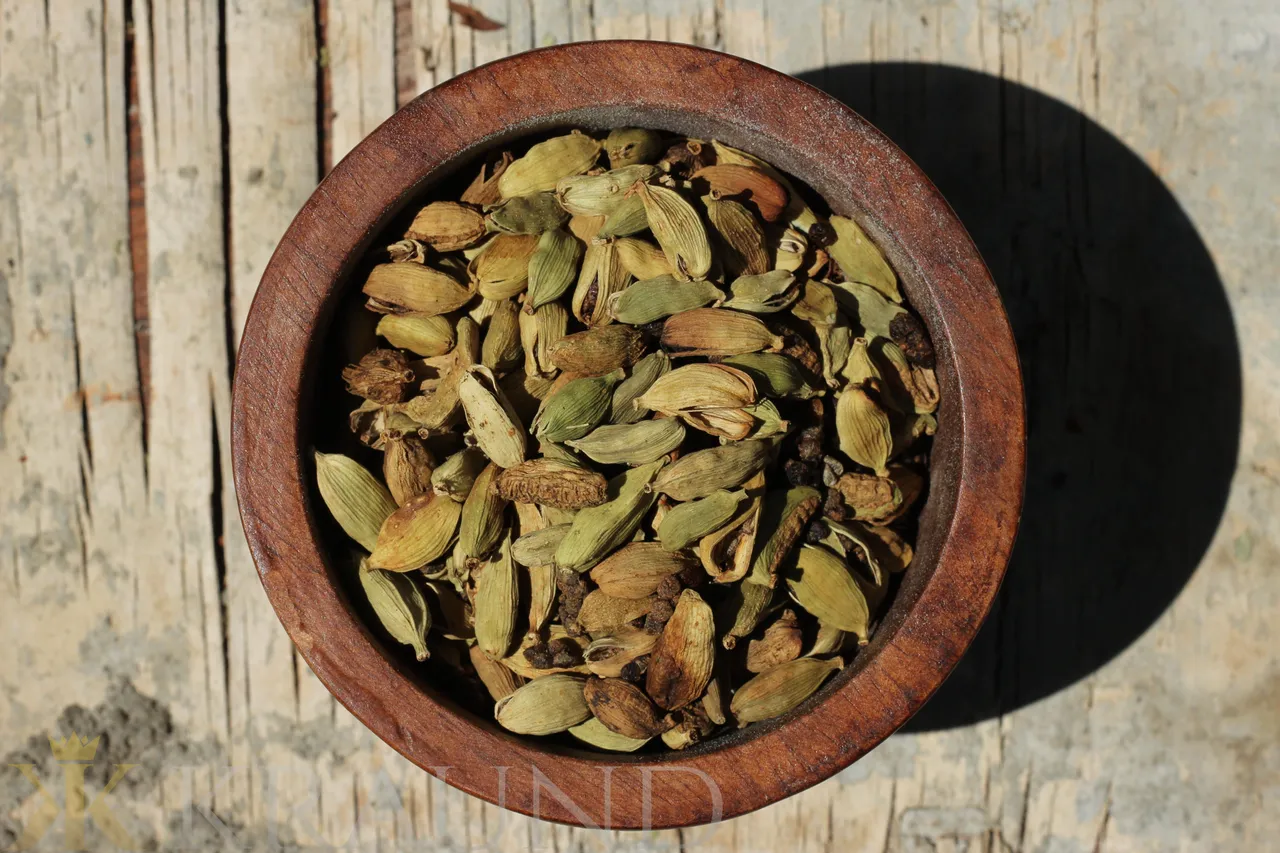
A popular Amazon palm bears the cardamom fruit that contains an extremely potent antioxidant which fights free radicals within the body.
What's Cardamom
The scientific name: Elettaria cardamom – Additional names: Amomum cardamomum, Bai Dou Kou, Black Cardamom, Cardamome p Malabar, Cardamome Noire, Cardamome Verte, Cardamomo, Cardomom, Cardomomi Fructus, Ela, Elettaria cardamomum, Green Cardamom, Huile Essentielle p Cardamome, Indian Cardamom.
Cardamom is an herbaceous perennial plant typically found in the wild in India and Sri Lanka but has ever since been cultivated in other tropical areas. The cardamom fruits are pale green to yellow from colour. They turn brown when dried. A cardamom fruit contains 15 to 20 small aromatic seeds which are about 3 mm in length. Cardamom is extremely valued as flavouring agent.
Cardamom originates from the ginger family Zingiberaceae. Other species that are closely associated with the genus Amomum from the ginger family are also called cardamom. These cardamom species have bigger fruits and have somewhat a neater taste and odour.
Cardamom seeds or fruits are primarily used to flavour beverages, baked goods, and confection. It is incredibly valued as a costly culinary spice, just like saffron and vanilla. Cardamom is also appreciated for its use in herbal medicine since it has several health benefits. Cardamom is particularly useful for those struggling with stomach problems, liver, gall, urinary, and bladder ailments. It is a stimulant. Being native in South India and Sri Lanka, it has got a very long history of use in Ayurveda medicine.
Cardamom is deemed safe at the recommended dosages, but can otherwise cause adverse effects, such as nausea, vomiting, and allergies for sensitive people.
Cardamom, Nutrient value per 100 g - Proximates – NV - %RDA
- Energy - 311 Kcal – 15.5% - Carbohydrates - 68.47 g
- 52.5% - Protein - 10.76 g - 19%
- Total Fat - 6.7 g - 23%
- Dietary Fiber - 28 g - 70%
- Vitamins: Niacin - 1.102 mg - 7% - Pyridoxine - 0.230 mg - 18% - Riboflavin - 0.182 mg - 14% - Thiamine - 0.198 mg - 16.5% - A Vitamin - 0 IU - 0% - Vitamin C - 21 mg - 35% - Minerals - Calcium - 383 mg - 38% - Iron - 14.0 mg - 78% - Magnesium - 229 mg - 57% - Phosphorus - 178 mg - 32% - Sodium - 18 mg - 1% - Zinc - 7.5 mg - 50% - Copper - 0.4 mg - 19% - Percent daily values are based on 2000 Kcal diets.
The FDA hasn't assessed the statements. The information is provided for informational purposes only. It's not intended to substitute medical advice or diagnosis by your doctor or other medical professionals. These herbs and products aren't meant to diagnose, treat, prevent or cure any illness. Please always consult your healthcare professional.